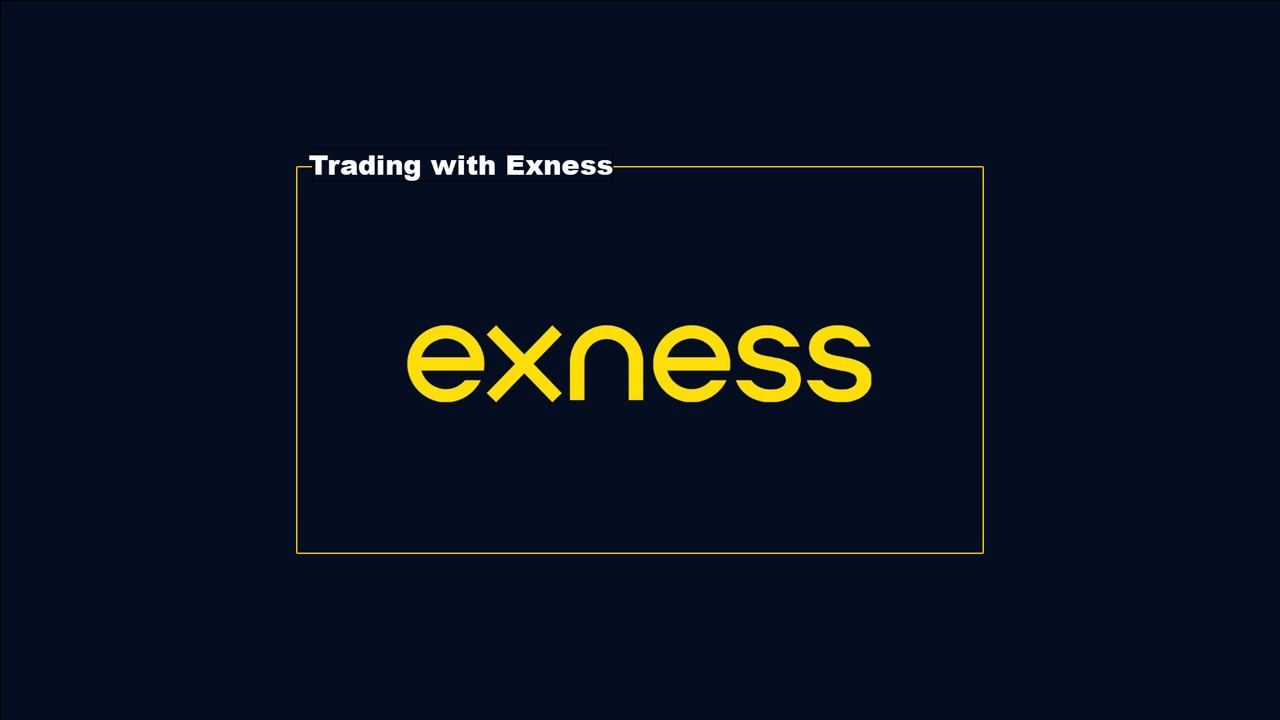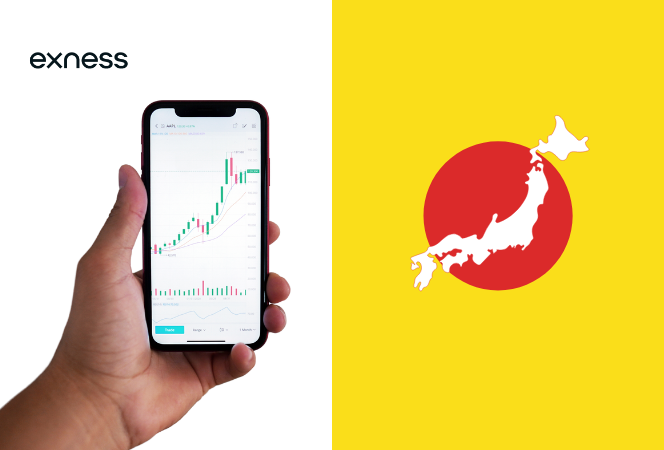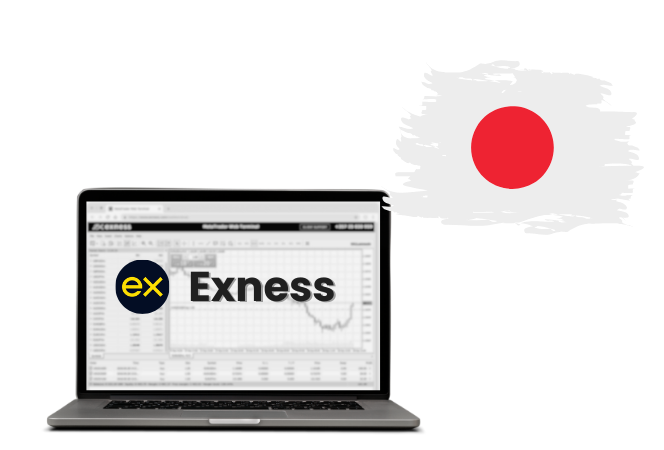
9 minute read
Is Exness Legitimate in Japan? Broker Review
Navigating the forex market as a Japanese trader requires careful consideration of which brokers you can trust. Exness has gained popularity globally, but its status in Japan remains a question for many potential users. This review cuts through the noise to examine Exness's legitimacy, regulatory compliance, and accessibility for Japanese traders, helping you make an informed decision before committing your capital.
Let's dive into the specifics of Exness's operations in Japan, covering everything from legal status to trading conditions and payment methods that matter to Japanese investors.

🏆 Start Trading With Exness – Register Now! 🚀 or Visit the Broker’s Website ⭐
Introduction to Exness in Japan
Exness entered the global trading scene in 2008 and has since expanded its reach across various markets worldwide. The broker has built a reputation for offering competitive trading conditions, including tight spreads, high leverage, and fast execution speeds. However, when it comes to Japan specifically, Exness faces a different landscape due to the country's strict financial regulations.
The Japanese forex market is highly regulated, with specific requirements that brokers must meet to operate legally. Unlike some markets where Exness has established a strong presence, Japan's regulatory environment presents unique challenges. Japanese traders considering Exness need to understand how these regulations impact their ability to access the platform and what alternatives might exist if direct access isn't possible.
Exness Regulatory Status in Japan
Exness currently does not hold a license from the Financial Services Agency (FSA) of Japan, which is the primary regulatory body overseeing forex brokers in the country. To legally offer financial services to Japanese residents, a broker must obtain an FSA license, which involves meeting stringent capital requirements, maintaining transparent business practices, and following strict rules about leverage limits and investor protection.
While Exness holds regulatory licenses from reputable authorities in other jurisdictions—including the Financial Conduct Authority (FCA) in the UK, the Cyprus Securities and Exchange Commission (CySEC), and the Financial Sector Conduct Authority (FSCA) in South Africa—these licenses don't extend to operations in Japan. This regulatory gap means that Exness cannot legally market its services directly to Japanese residents or maintain a physical presence in Japan for business purposes.
Is Exness Accepted for Japanese Traders?
Due to regulatory constraints, Exness faces significant limitations in serving Japanese traders. Here's what Japanese residents need to know:
Exness does not actively market its services to Japanese residents
The broker doesn't maintain official representative offices in Japan
Japanese IP addresses may be restricted from accessing certain features
Account opening may be limited or impossible for those with Japanese documentation
Using VPNs to circumvent restrictions could violate terms of service
Trading through Exness while residing in Japan may lack legal protections
Japanese traders using Exness would not have recourse through the FSA if disputes arise
These restrictions exist to comply with international regulatory standards and Japanese law. Japanese traders seeking to use forex brokers should generally stick with FSA-licensed providers to ensure legal compliance and appropriate investor protections.
Exness Trading Conditions for Japanese Users
Since Exness doesn't officially operate in Japan, Japanese traders who somehow access the platform would encounter trading conditions designed for other markets. These conditions would likely conflict with Japan's regulatory requirements, particularly regarding leverage limits.
Japan's FSA caps leverage at 1:25 for forex trading, while Exness offers up to 1:2000 in some jurisdictions. This discrepancy highlights why the broker cannot operate under its standard model in Japan. Additionally, Japanese traders would face challenges with account funding, withdrawal processes, and might experience service interruptions if their Japanese residency status is identified.
The platform does offer MetaTrader 4, MetaTrader 5, and Exness's proprietary terminal, with trade execution normally averaging under 0.1 seconds. However, Japanese traders would need to consider whether accessing these features is worth the regulatory uncertainty and potential legal complications.
Customer Support for Japanese Clients
Exness's global customer support operates 24/7 through various channels including live chat, email, and phone. However, the level of Japanese language support is limited compared to FSA-regulated brokers that specifically serve the Japanese market.
While Exness does offer some materials in Japanese on its international website, dedicated Japanese-speaking support staff are not as readily available as they would be with a Japan-focused broker. Japanese traders might face communication barriers when dealing with complex trading issues, account problems, or technical questions, making the support experience less than ideal for non-English speakers.
For Japanese traders accustomed to the high standards of local customer service, this gap could present a significant drawback compared to FSA-licensed alternatives that provide comprehensive Japanese language support across all communication channels.

🏆 Start Trading With Exness – Register Now! 🚀 or Visit the Broker’s Website ⭐
Exness Payment Methods in Japan
Payment options are critically important for Japanese traders, and this area presents additional challenges for those considering Exness. Since the broker doesn't officially operate in Japan, payment methods specifically optimized for Japanese users are limited.
Globally, Exness supports various payment methods including credit/debit cards, bank transfers, and e-wallets like Skrill and Neteller. However, popular Japanese payment systems like Japan Net Bank transfers, convenience store payments, or local e-money services may not be fully supported or optimized.
Japanese traders who attempt to use the platform might encounter:
Higher transfer fees when using international payment methods
Longer processing times for deposits and withdrawals
Potential issues with Japanese banks flagging transfers to unregulated brokers
Currency conversion costs when trading in non-JPY denominated accounts
Complications with tax reporting for transactions with overseas brokers
These payment limitations add another layer of complexity for Japanese traders considering Exness despite the regulatory restrictions.
User Reviews and Reputation in Japan
Feedback from Japanese traders about Exness is mixed and limited, given the broker's unofficial status in the country. Here are some compiled user sentiments:
"I tried using Exness through my overseas account before moving back to Japan. The trading conditions were excellent, but I had to switch to an FSA-regulated broker when I returned due to compliance concerns." - Tanaka S., Tokyo
"The leverage options on Exness were attractive compared to Japanese brokers, but the payment process was complicated. I eventually switched to a local broker for peace of mind." - Yamamoto K., Osaka
"Customer support couldn't help me with Japan-specific tax questions. This was a dealbreaker since I need clear documentation for my Japanese tax returns." - Nakamura T., Fukuoka
"The platform worked well technically, but I constantly worried about the regulatory situation. Not worth the stress when there are properly licensed options available." - Suzuki R., Sapporo
These reviews highlight the practical challenges Japanese traders face when attempting to use platforms not specifically licensed for the Japanese market.
How to Start Trading with Exness in Japan
While Exness does not officially serve the Japanese market, here's what interested traders should know about the general account opening process with regulated brokers:
Research and choose a broker properly licensed by the FSA
Prepare identification documents (passport or driver's license)
Gather proof of residence (utility bill or bank statement)
Complete the online registration form on the broker's website
Submit your verification documents as required
Wait for account approval (typically 1-2 business days)
Fund your account using approved payment methods
Download and install the trading platform
Set up risk management parameters on your account
Start with a demo account to practice before live trading
For Japanese residents specifically looking for legitimate trading options, focusing on FSA-licensed brokers is the recommended approach to ensure regulatory compliance and appropriate consumer protections.

🏆 Start Trading With Exness – Register Now! 🚀 or Visit the Broker’s Website ⭐
Conclusion: Is Exness Legitimate and Safe for Japanese Traders?
Exness is a legitimate broker with proper regulation in multiple jurisdictions worldwide, but it lacks the necessary FSA license to operate legally in Japan. This regulatory gap means Japanese traders should approach with caution. While the broker offers attractive trading conditions globally, the lack of official status in Japan creates uncertainties regarding legal protection, taxation, and dispute resolution.
Safety for Japanese traders ultimately comes from working with properly licensed brokers that comply with local regulations. The strict oversight of the FSA exists specifically to protect Japanese investors, and stepping outside this regulatory framework introduces unnecessary risks. Japanese traders would be better served by choosing from the wide selection of FSA-licensed brokers that offer compliant services tailored to the Japanese market, complete with local language support and payment methods optimized for Japanese users.
Frequently Asked Questions (FAQ)
Is Exness regulated in Japan?
No, Exness is not regulated by the Financial Services Agency (FSA) of Japan. The broker holds licenses from several international regulatory authorities including the UK's FCA, Cyprus's CySEC, and South Africa's FSCA, but none of these licenses extend to operations in Japan. Without FSA regulation, Exness cannot legally market its services directly to Japanese residents or maintain a business presence in Japan.
Can I trade with Exness if I am a resident of Japan?
Technically, Exness does not officially accept clients who are residents of Japan due to regulatory restrictions. The broker's terms of service typically exclude countries where they don't hold appropriate licenses. Japanese residents seeking forex trading services should work with FSA-licensed brokers to ensure legal compliance and proper investor protections. Attempting to circumvent these restrictions could potentially violate both the broker's terms of service and Japanese financial regulations.
What payment methods are available for Japanese traders on Exness?
Since Exness doesn't officially operate in Japan, payment methods aren't specifically optimized for Japanese users. Globally, Exness supports credit/debit cards, bank transfers, and e-wallets like Skrill and Neteller. However, Japanese-specific payment methods such as convenience store payments or local bank transfers optimized for JPY may not be fully supported. Japanese traders using FSA-regulated brokers typically have access to a wider range of locally optimized payment options with lower fees and faster processing times.
Does Exness offer Japanese language support?
Exness provides limited Japanese language support compared to FSA-regulated brokers specifically serving the Japanese market. While some materials on the international website may be available in Japanese, comprehensive Japanese-speaking customer support across all channels is not as robust as with Japan-focused brokers. Japanese traders who value communication in their native language would generally find better support options with locally licensed brokers that emphasize Japanese language services.
How can I open an Exness account as a Japanese resident?
As a Japanese resident, opening an account with Exness is problematic due to regulatory constraints. Instead, Japanese traders should focus on opening accounts with FSA-licensed brokers by preparing proper identification (passport or driver's license), proof of address (utility bill or bank statement), completing the broker's registration form, and submitting these documents for verification. FSA-regulated brokers will provide clear guidance on the account opening process compliant with Japanese regulations, including appropriate risk disclosures and leverage limitations.










